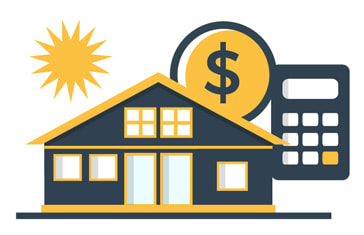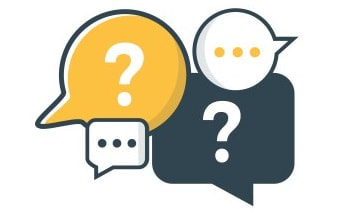How much can I borrow for a mortgage calculator?
Find out in seconds how much you're likely to be able to borrow for a mortgage based on your income. Our trusted calculator outlines what you need to know.
Updated 29 January 2023
Find out how much you could borrow in one simple click:
Our video explains all:
MoneyHub's Head of Research, Christopher Walsh, explains how our calculator works in the video below, as well as highlighting must-know facts and considerations:
- Our calculator tells you how much you can borrow based on how much you can set aside for mortgage repayments every month. Just insert:
- The Max Monthly payment (amount you could comfortably repay every month) and
- The Term (how long you want to have the mortgage) and
- The Interest Rate (our best mortgage rates guide has the latest deals from the banks)
Our video explains all:
MoneyHub's Head of Research, Christopher Walsh, explains how our calculator works in the video below, as well as highlighting must-know facts and considerations:
Next Steps: Use the Calculator
Let our calculator do the work. For example, if you could set aside a maximum of $2,000 every month for mortgage repayments and want a 25 year mortgage (the standard term), enter in 2,000 in the Max Monthly Payment field.
Let our calculator do the work. For example, if you could set aside a maximum of $2,000 every month for mortgage repayments and want a 25 year mortgage (the standard term), enter in 2,000 in the Max Monthly Payment field.
How Much Can I Borrow Calculator
Based on the supplied data, you could afford to repay a loan of 464.84
464.84
Monthly Payment
Over 120 Payments
Total Interest
Pay-off Date
Repayment Schedule
Yearly Repayments
Monthly Repayments
Assumptions
Our calculator has been designed to show you how much you may be able to borrow, and it would it would cost to repay over the life of the mortgage. Our calculations are computer-generated and rely on a number of assumptions, as stated below:
Important - Always ask for a specific quote from the lender; every bank in New Zealand has its own lending criteria which affects how much you can borrow. Our calculator is indicative only and we do not accept responsibility for any errors or any reliance placed on the information. If you do notice anything incorrect, please contact us.
Our calculator has been designed to show you how much you may be able to borrow, and it would it would cost to repay over the life of the mortgage. Our calculations are computer-generated and rely on a number of assumptions, as stated below:
- This calculator is based on affordability, and does not directly use monthly expenses or available deposits as data points.
- The maximum monthly payment amount you enter is the limit of how much available money you can set aside for your mortgage. For example, if you earn $5,000 after-tax every month and pay $1,000 in rent and after all bills are able to save $500, we believe the maximum monthly payment you can afford for a mortgage is $1,500. We base this on the fact that rental expenses will be replaced with mortgage repayments.
- We have not included a deposit amount; generally, banks now require a 15% deposit for a first-home deposit, and this can be sourced from savings, a KiwiSaver First-Home withdrawal and/or a KiwiSaver HomeStart grant.
- We assume an interest rate of 5.00%, which is around 1% to 2% below lowest bank lending offers currently available as of January 2023, and just below the OCR. Please change this to the market rates.
- We assume that the interest rate stays the same over the term of the mortgage.
- We assume the term you select (our default is 25 years) will remain the same, and you will not make any early repayments
- We assume you will pay no mortgage fees and any associated costs with your home purchase.
- We assume that interest is charged monthly and repayments are made monthly.
- We assume you have a repayment mortgage, and not an interest-only mortgage.
- We assume that the ongoing costs of home ownership (rates bills, repairs and maintenance) are built into the estimated monthly repayment you can afford.
Important - Always ask for a specific quote from the lender; every bank in New Zealand has its own lending criteria which affects how much you can borrow. Our calculator is indicative only and we do not accept responsibility for any errors or any reliance placed on the information. If you do notice anything incorrect, please contact us.
Know this: Missing a mortgage repayment will have severe consequences and may cause financial stress in the short-term and lead to the forced sale of your home.
Ready to Re-Mortgage or Apply for a Home Loan?
Consider a Mortgage Broker - They Usually Save Time and Money
Mortgage brokers are popular and don't charge a fee. Their service goes beyond what a bank offers by comparing a number of lenders to find the best deal for your circumstances.
We've shortlisted top-rated mortgage brokers who go the distance for their clients in select cities around New Zealand:
We've shortlisted top-rated mortgage brokers who go the distance for their clients in select cities around New Zealand:
How much can I borrow? Frequently Asked Questions
How much money do you need to buy a house?
For first-home mortgages, banks require at least a 15% deposit, but it's more likely to be 20% given the restrictions on lending imposed by the Reserve Bank of New Zealand. In dollar terms, the amount you will need depends on where you are in New Zealand and what kind of property you are looking for. For Auckland, Wellington, and Christchurch, a 2/3 bedroom home is around $400,000 to $800,000, while apartments can be a lot less. Based on this, a deposit of $60,000 to $120,000 is realistic.
How can I get money for a deposit?
General savings (such as cash in the bank, term deposits and selling down any non-cash investments) are a huge part of making up a deposit. The government allows you to withdraw all of your KiwiSaver fund to fund a deposit - our guide to the KiwiSaver First-Home withdrawal process has more details. And, if the value of your home is under the threshold level, the KiwiSaver HomeStart grant offers money to help with your deposit. Lastly, quite often new home buyers ask their families for a loan to firm up their deposit. This is becoming increasingly difficult as house prices increase and the amount you can borrow really depends on your family circumstances - for a lot of people this won't be an option.
What do banks look for when I apply for a mortgage?
A lender will look at your financial circumstances to understand whether a potential mortgage would be affordable, sustainable and suitable. Each lender has its own criteria, but generally you will need to provide:
The lender will also perform a credit check and then calculate to determine if you will be able to afford the loan and keep up with the proposed payment schedule. If you have any past issues with credit or debt, read our guide to credit reports and credit scores before you make any mortgage application as you can challenge any incorrect information.
- Proof of any regular income you have (employment contract, pay slips, bank account proof etc.)
- Any extra income you receive (such as child support)
- A history of your personal and living expenses, including rent payments, utilities, food and other personal expenses, as well as finance/hire purchase commitments.
- A list of all of your assets (car, contents) and debts (such as credit cards, car loans etc.)
The lender will also perform a credit check and then calculate to determine if you will be able to afford the loan and keep up with the proposed payment schedule. If you have any past issues with credit or debt, read our guide to credit reports and credit scores before you make any mortgage application as you can challenge any incorrect information.
Can I get a 100% mortgage, i.e. buy a house with no money?
Yes, but only if you have an existing property that is either mortgage-free or has a low percentage of debt to equity. This is not an option for first-home buyers.
Can I borrow for an investment property?
Yes, although interest rates and repayment terms may be different to standard residential mortgages. How much you can borrow depends on the expected rental income, your deposit and security for the mortgage.
How much deposit do I need for an investment property loan?
As stated above, you can get 100% mortgages for investment properties, but this would be secured against your home. If you fail to repay your mortgage, your investment property will be sold, and if there is still money owed to the lender, your home could also be sold.
What is the maximum mortgage amount I can apply for?
You can apply for whatever amount you like, but what will be approved depends on how much you can afford to repay. If you apply for a $500,000 mortgage and earn $25,000 per year, this is unlikely to be approved. Banks are primarily concerned about affordability as this lowers the risk of defaults. Generally, if you can afford the repayments, the mortgage will be approved.
Where can I get the best mortgage deal?
- Our guide to mortgages explains everything you need to know to find the best deal. We recommend mortgage brokers as a good place to start too - our guide outlines everything you need to know.
- Looking to refinance or estimate your repayments with a specific interest rate? Check out our mortgage calculator and refinance calculator.
- Want to check your credit history to make sure you look perfect to a lender? Read our guide to credit reports before you make any mortgage application.
Mortgage Essentials:
Other Mortgage Options:
- Best Home Loans Offers
- Mortgage Calculator
- Mortgage Repayment Calculator
- Mortgage Options
- Mortgage Cashback
Other Mortgage Options:


